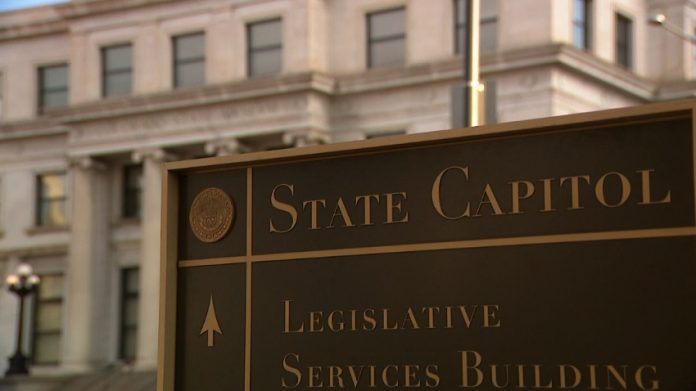Pueblo, CO— Colorado lawmakers are facing a looming deadline to balance the state’s budget, a task made more difficult by a $1 billion deficit. As the Joint Budget Committee (JBC) works to finalize the state’s spending plan, they are also contending with the pressing issue of a growing backlog of sexual assault evidence kits, a problem that has left thousands of survivors waiting for justice.
The committee, responsible for drafting the state budget, has found itself at the intersection of fiscal responsibility and the urgent need to address systemic issues within the Colorado Bureau of Investigation (CBI). The state is currently grappling with a backlog of 1,462 sexual assault cases, with victims waiting an average of 560 days for the results of their DNA tests. This delay is made worse by a series of complications, including a scandal involving former CBI forensic scientist Yvonne Woods, who retired in November 2023 amid accusations of mishandling DNA evidence. As a result, CBI was forced to dedicate significant resources to reviewing her past work, further slowing down the processing of rape kits.
State Senator Barbara Kirkmeyer, a member of the JBC, acknowledged the complexity of the situation, noting that while the committee is behind schedule, the release of a new budget forecast on March 17 provides the basis for finalizing the budget. “We’re behind, but we will get our forecast on Monday, March 17. That’s what we have to balance the budget to,” said Kirkmeyer. She emphasized the importance of balancing state spending with the constitutional requirement to maintain a balanced budget, but also underscored the need for thoughtful consideration of the backlog in DNA testing.
The backlog has been a source of frustration for both lawmakers and survivors, many of whom have been waiting over a year for answers. CBI’s Deputy Director of Forensic Services, Lance Allen, told the JBC that the shortage of experienced DNA scientists remains a significant challenge. Despite the recruitment of 15 new scientists, many of whom are still in training, Allen explained that it takes roughly two years to fully train a forensic scientist from scratch.
“We are always trying to hire experienced DNA scientists. There’s just a limited capacity,” Allen said. The shortage, compounded by the scandal surrounding Woods, has forced CBI to revise its expectations for turnaround times, with the agency aiming to reach a 90-day processing goal by 2027.
In the meantime, the JBC has proposed several measures to address the backlog, including payments to local crime labs that assist with testing kits, the creation of a statewide Sexual Assault Kit Coordinator, and the allowance of virtual testimony in court proceedings for forensic scientists. These recommendations aim to decentralize the testing process and provide local labs with financial incentives to help reduce the backlog. Kelsey Harbert, a survivor and advocate who helped develop the proposals, emphasized the need to distribute the workload to avoid future breakdowns.
“The idea is to spread out the testing to other labs that are capable, while still ensuring that they meet the same standards as CBI,” Harbert explained. “If we have these labs that are more local, but they follow the same procedures and standards, why not use them more?”
However, CBI has expressed concerns that relying on regional labs could complicate efforts to address the backlog. In a statement, the agency argued that such a proposal could “greatly compromise” their plan and shift the backlog without addressing the underlying issues. CBI also pointed out that many regional labs are experiencing staffing shortages of their own, which could further delay the testing process.
Despite these concerns, members of the JBC have indicated a willingness to explore additional funding for CBI in order to speed up the testing process. Sen. Jeff Bridges, Chair of the JBC, urged CBI officials to return to the committee with a specific dollar amount needed to hire more staff. “If there’s the possibility of hiring some additional people and it requires some additional dollars, they should come ask for the dollars,” he said.
For survivors like Harbert, the issue remains personal. She hopes the JBC will consider the broader implications of the recommendations and continue to work toward a solution that prioritizes the needs of victims. “It’s important to keep the conversation going, to not just dismiss ideas without fully understanding the capacity of other labs or getting more information from CBI,” she said.
As lawmakers continue to debate the budget and the best approach to resolving the backlog, the pressure is mounting to find a solution that balances the state’s fiscal constraints with the need for justice and healing for sexual assault survivors.
In addition to the proposed budget measures, CBI has been allocated $7.4 million to address the fallout from the Woods investigation, with $3 million of that funding rolling over into the 2025-26 fiscal year for forensic testing. The funding will allow CBI to send up to 1,000 backlogged cases to private labs for testing. Senate Bill 25-170, which would authorize CBI to use contract labs, is still awaiting final approval from Governor Jared Polis.
As the March 24 deadline for the Long Bill approaches, Colorado lawmakers face a delicate balancing act. The decisions made in the coming days will not only shape the state’s budget but will also determine how quickly victims of sexual assault will receive the justice they deserve.



